Can You Learn CKA Certification from Scratch?
Update time:2025-10-21
Many beginners hoping to enter the cloud-native field often ask:
“I’ve never used Linux or worked with containers — can I start directly with CKA?”

After all, the CKA (Certified Kubernetes Administrator) is one of the hottest certifications today and seems like a shortcut into the DevOps or cloud-native world.
But here’s the truth — it’s not recommended to jump straight into CKA with zero foundation.
Not because you can’t learn it, but because it’s inefficient and leads many to give up halfway.
Let’s break down why that happens — and how you can prepare properly, even as a complete beginner.
I. Why Starting CKA from Zero Is So Difficult
The CKA exam (by CNCF, Cloud Native Computing Foundation) tests your ability to manage production-grade Kubernetes clusters independently, including application deployment, troubleshooting, and storage/network configuration.

However, Kubernetes depends on two key technologies:
Linux — all cluster nodes run on Linux;
Containers — Kubernetes orchestrates containerized applications.
Without these foundations, learning CKA becomes a constant uphill battle.
The Three Main Barriers:
Lack of Hands-on Skills
The exam is entirely command-line-based.Beginners without Linux basics (SSH login, Vim editing, system monitoring) can’t perform even simple fixes.Memorizing kubectl commands won’t help if you can’t diagnose errors in a terminal.
Conceptual Gaps
Kubernetes concepts are built on container fundamentals.
Without understanding Linux namespaces, you can’t grasp the Kubernetes networking model.
Without knowing container lifecycles, you can’t tell when to use a Deployment vs. a StatefulSet.
Low Study Efficiency
While experienced candidates pass in 2–3 months, beginners usually need 4–5 months because they must learn Linux and Docker while studying Kubernetes.
This causes confusion — for example, while learning PV/PVC, you must backtrack to disk mounting, or when learning image pulls, you must study Docker.
II.Prerequisites and Study Path
1.Essential Knowledge Foundation (1–2 months)
Linux Basics
File Operations: cd, ls, pwd, mkdir, rm
Text Handling: basic Vim editing, cat/tail for logs
System Monitoring: top, ps, netstat
Permissions: sudo, chmod
Docker Fundamentals
Container Commands: docker run, ps, stop, rm
Image Management: docker pull, images, rmi
Core Concepts: relationship between images and containers, network isolation
2.CKA Study Roadmap (4–6 months)
Phase 1: Foundation Building (1–2 months)
Focus on Linux command fluency and container concepts.
Practice daily in a virtual machine.
Goal: Complete full workflows — login → edit config → view logs.
Phase 2: Kubernetes Core Learning (2–3 months)
Master core cluster concepts: kubectl commands, architecture, workloads, networking, and storage.
Complete at least 50+ practice scenarios using local clusters or online labs.
Use CKA exam dumps to identify high-frequency topics and practice real command-line scenarios.
Phase 3: Exam Simulation (1 month)
Use mock exams or official-style simulators to replicate the 2-hour, real exam experience.
Practice 2–3 times weekly under time limits.
Use the CKA dumps to review missed topics and familiarize yourself with the Kubernetes documentation structure.

III.High-Efficiency Preparation Principles
Foundation First
Don’t skip Linux or Docker basics.You don’t need mastery — just enough to move confidently in the command line and understand container fundamentals.
Hands-On Learning
Avoid pure theory.Every Kubernetes concept should be practiced immediately — deploy Pods, test Services, verify connectivity.Build understanding through action.
Avoid Common Pitfalls
No GUI tools — all operations should be command-line based (as in the real exam).
Don’t memorize — understand the logic behind each command and workflow.
Keep versions updated — train on Kubernetes 1.29+ for alignment with current exam environments.
Recommended Prep Resource
If you’re new and want to prepare efficiently, the CKA Practice Dumps is your best shortcut.
It provides:
Updated real exam-style tasks (covering 90%+ of current question types);
Step-by-step solutions with command-line breakdowns;
Timed mock exams simulating the actual test environment.
Using structured CKA dumps helps you:
Summary
Preparing for CKA from zero requires a structured, three-stage path:
Foundation → Core Learning → Exam Simulation
It typically takes 4–6 months to complete, but the Linux and container knowledge you gain forms the foundation for all future cloud-native learning.
Focus on practical command-line experience and efficient use of verified CKA dumps — and you’ll not only pass the exam but also gain real-world Kubernetes operational skills.
“I’ve never used Linux or worked with containers — can I start directly with CKA?”

After all, the CKA (Certified Kubernetes Administrator) is one of the hottest certifications today and seems like a shortcut into the DevOps or cloud-native world.
But here’s the truth — it’s not recommended to jump straight into CKA with zero foundation.
Not because you can’t learn it, but because it’s inefficient and leads many to give up halfway.
Let’s break down why that happens — and how you can prepare properly, even as a complete beginner.
I. Why Starting CKA from Zero Is So Difficult
The CKA exam (by CNCF, Cloud Native Computing Foundation) tests your ability to manage production-grade Kubernetes clusters independently, including application deployment, troubleshooting, and storage/network configuration.
However, Kubernetes depends on two key technologies:
Linux — all cluster nodes run on Linux;
Containers — Kubernetes orchestrates containerized applications.
Without these foundations, learning CKA becomes a constant uphill battle.
The Three Main Barriers:
Lack of Hands-on Skills
The exam is entirely command-line-based.Beginners without Linux basics (SSH login, Vim editing, system monitoring) can’t perform even simple fixes.Memorizing kubectl commands won’t help if you can’t diagnose errors in a terminal.
Conceptual Gaps
Kubernetes concepts are built on container fundamentals.
Without understanding Linux namespaces, you can’t grasp the Kubernetes networking model.
Without knowing container lifecycles, you can’t tell when to use a Deployment vs. a StatefulSet.
Low Study Efficiency
While experienced candidates pass in 2–3 months, beginners usually need 4–5 months because they must learn Linux and Docker while studying Kubernetes.
This causes confusion — for example, while learning PV/PVC, you must backtrack to disk mounting, or when learning image pulls, you must study Docker.
II.Prerequisites and Study Path
1.Essential Knowledge Foundation (1–2 months)
Linux Basics
File Operations: cd, ls, pwd, mkdir, rm
Text Handling: basic Vim editing, cat/tail for logs
System Monitoring: top, ps, netstat
Permissions: sudo, chmod
Docker Fundamentals
Container Commands: docker run, ps, stop, rm
Image Management: docker pull, images, rmi
Core Concepts: relationship between images and containers, network isolation
2.CKA Study Roadmap (4–6 months)
Phase 1: Foundation Building (1–2 months)
Focus on Linux command fluency and container concepts.
Practice daily in a virtual machine.
Goal: Complete full workflows — login → edit config → view logs.
Phase 2: Kubernetes Core Learning (2–3 months)
Master core cluster concepts: kubectl commands, architecture, workloads, networking, and storage.
Complete at least 50+ practice scenarios using local clusters or online labs.
Use CKA exam dumps to identify high-frequency topics and practice real command-line scenarios.
Phase 3: Exam Simulation (1 month)
Use mock exams or official-style simulators to replicate the 2-hour, real exam experience.
Practice 2–3 times weekly under time limits.
Use the CKA dumps to review missed topics and familiarize yourself with the Kubernetes documentation structure.
III.High-Efficiency Preparation Principles
Foundation First
Don’t skip Linux or Docker basics.You don’t need mastery — just enough to move confidently in the command line and understand container fundamentals.
Hands-On Learning
Avoid pure theory.Every Kubernetes concept should be practiced immediately — deploy Pods, test Services, verify connectivity.Build understanding through action.
Avoid Common Pitfalls
No GUI tools — all operations should be command-line based (as in the real exam).
Don’t memorize — understand the logic behind each command and workflow.
Keep versions updated — train on Kubernetes 1.29+ for alignment with current exam environments.
Recommended Prep Resource
If you’re new and want to prepare efficiently, the CKA Practice Dumps is your best shortcut.
It provides:
Updated real exam-style tasks (covering 90%+ of current question types);
Step-by-step solutions with command-line breakdowns;
Timed mock exams simulating the actual test environment.
Using structured CKA dumps helps you:
Identify weak areas faster;
Get familiar with command syntax through repetition;
Practice real troubleshooting tasks — just like in the exam.
Summary
Preparing for CKA from zero requires a structured, three-stage path:
Foundation → Core Learning → Exam Simulation
It typically takes 4–6 months to complete, but the Linux and container knowledge you gain forms the foundation for all future cloud-native learning.
Focus on practical command-line experience and efficient use of verified CKA dumps — and you’ll not only pass the exam but also gain real-world Kubernetes operational skills.
I'm your man who have the 100% valid dumps , buy it now for 50% off to clear your exam!
Click it ↓↓
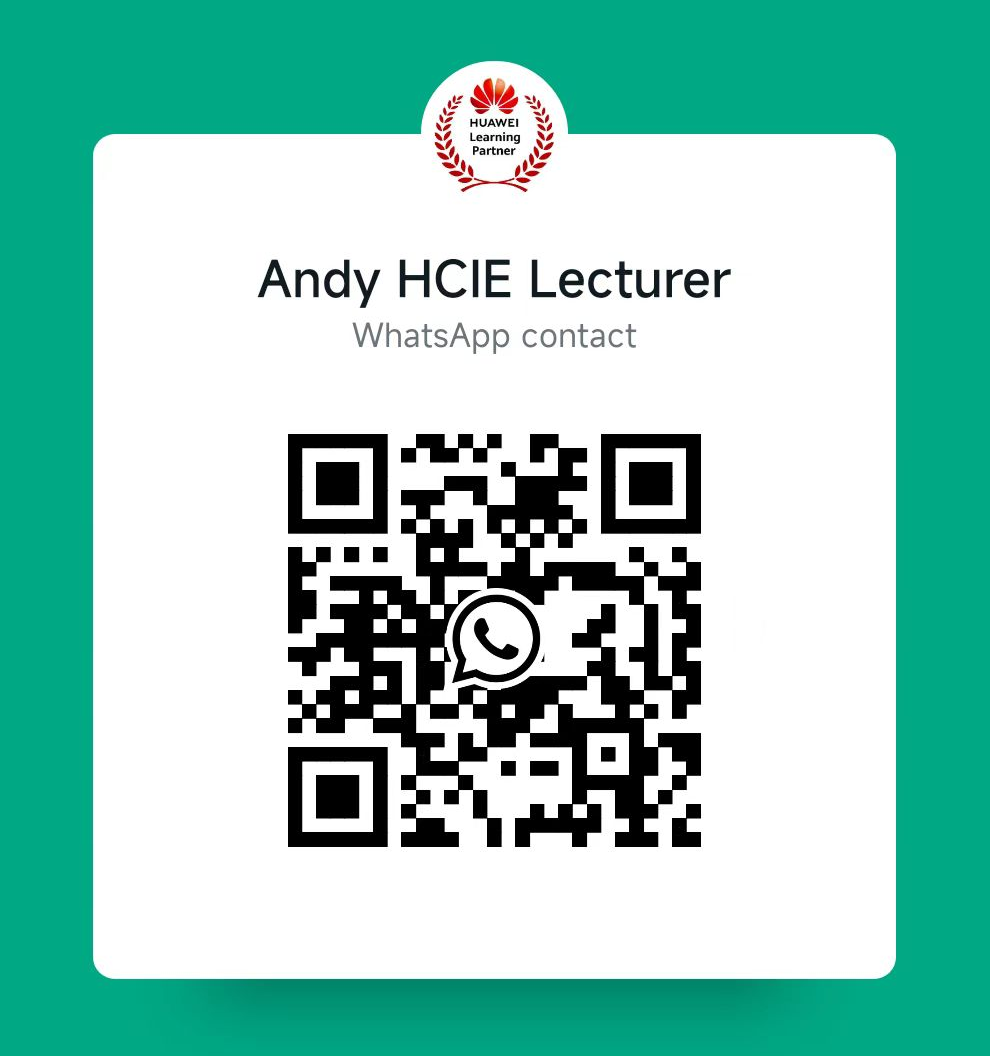
Hot article
-
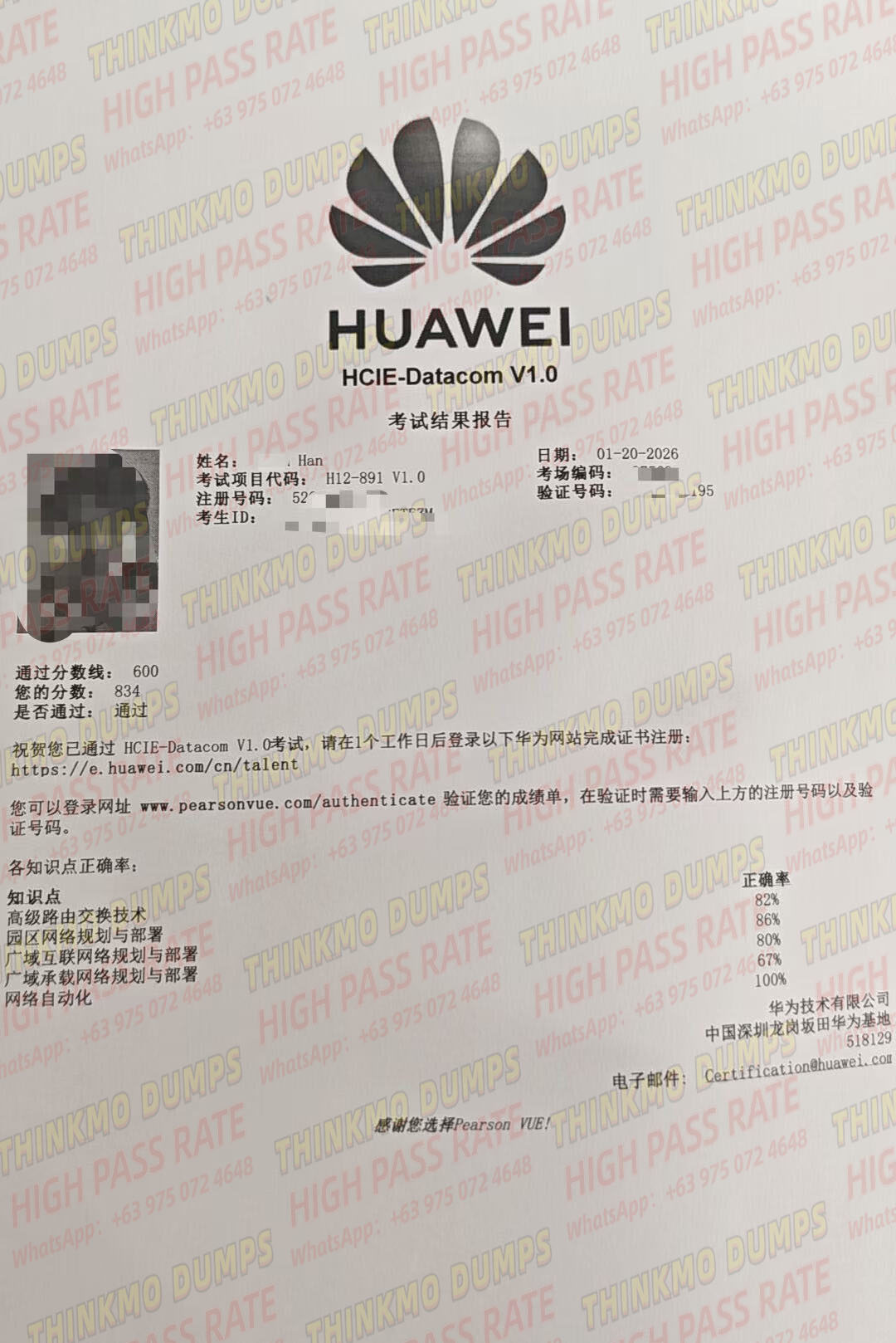 1
1 1. ThinkMo Precise Question Bank: Ace HCIE Written
上传:2026-01-23
-
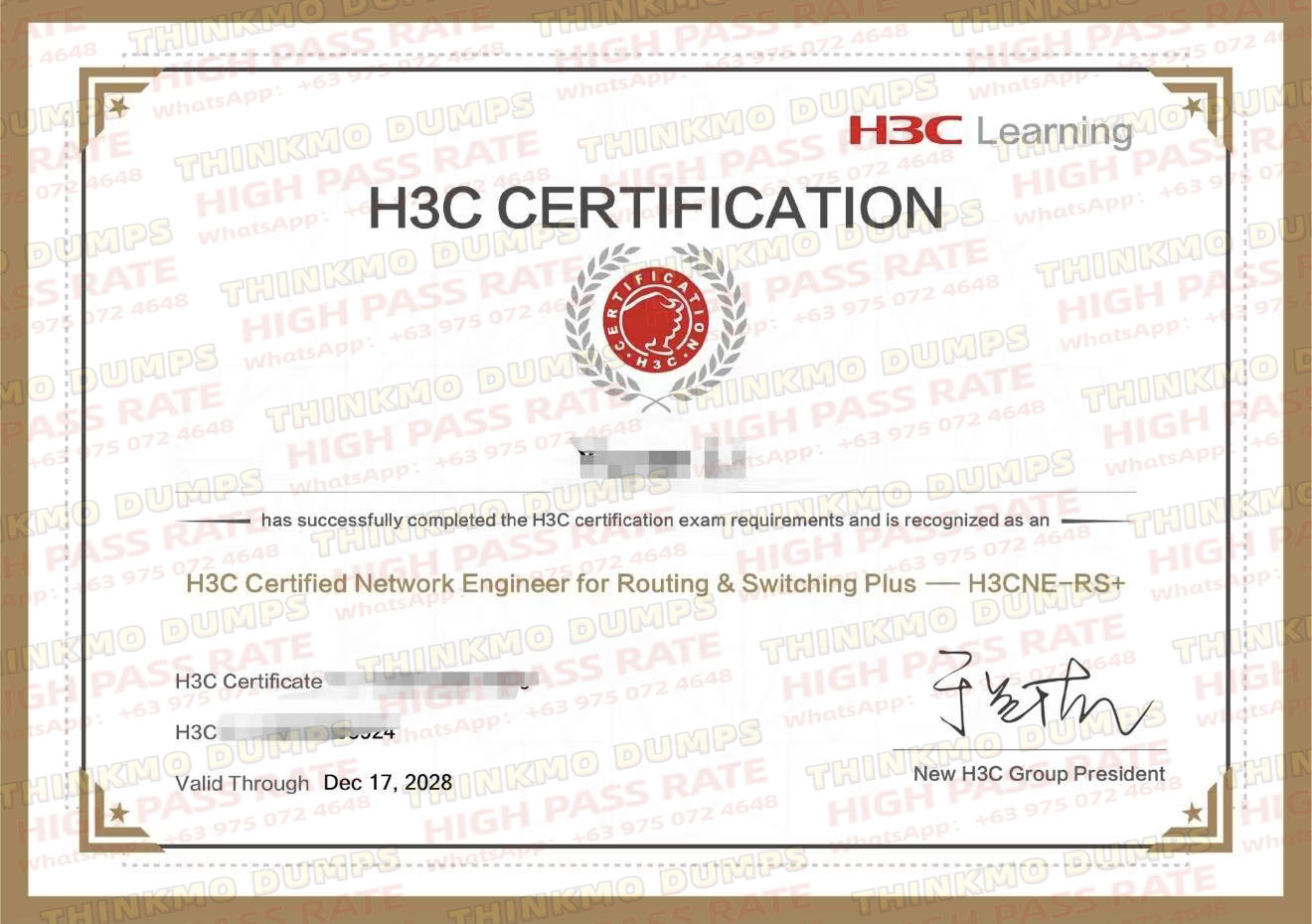 2
2 Triple H3CNE/H3CSE Passes | ThinkMo Christmas Succe
上传:2025-12-25
-
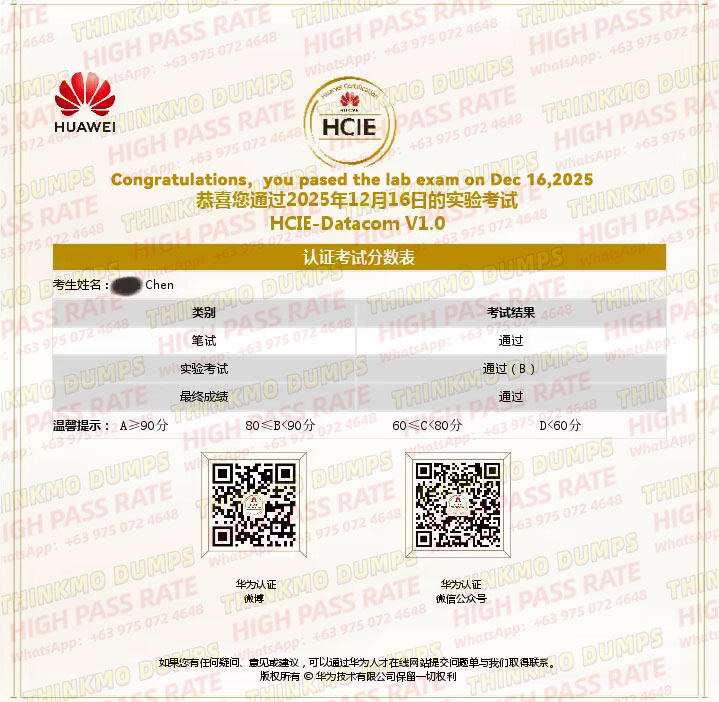 3
3 Success Streak: ThinkMo’s Dec HCIE-Datacom Win
上传:2025-12-24
-
 4
4 ThinkMo Guide: Cisco & Huawei Certification Com
上传:2025-12-22
-
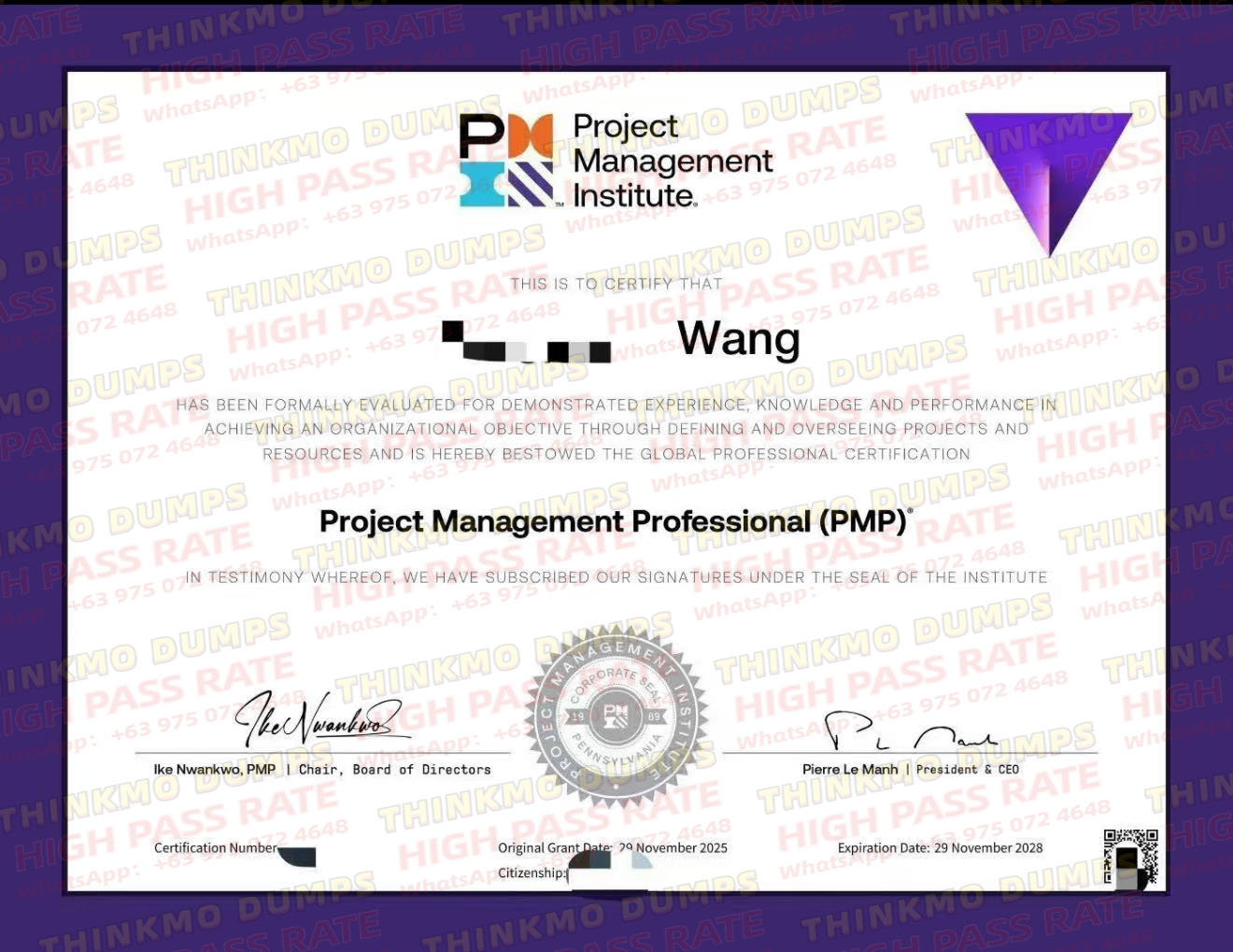 5
5 Pass CCIE/CKA Exams with ThinkMo’s Top Question B
上传:2025-12-19








